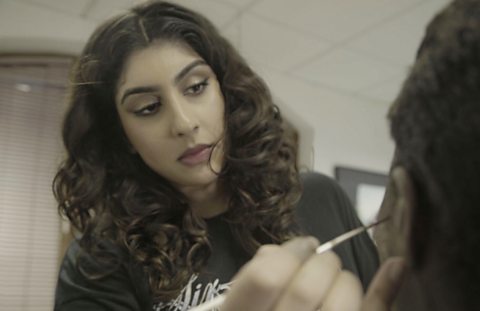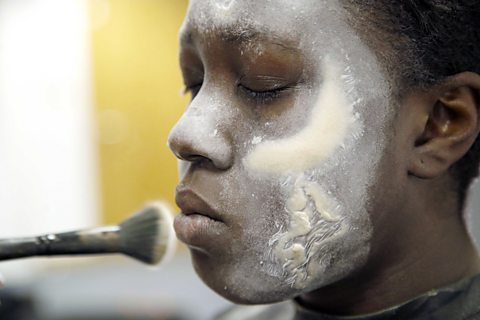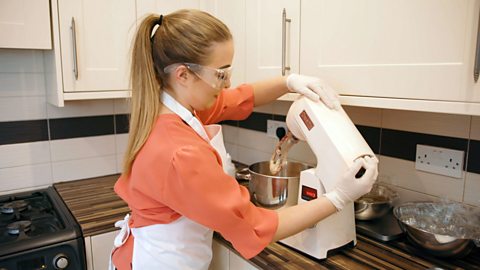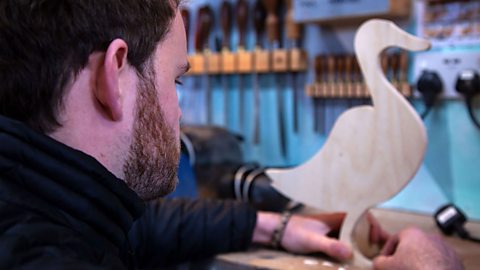Meet Amrita, 23, from Solihull, to find out more about life as a prosthetic makeup artist. Part of our Bitesize world of work series.

Can you explain what you do each day in your job?
My job varies so much. I paint faces and make people look like something they’re not, but in a believable way. I do realistic makeup such as wounds, altering a person’s age or features.
As well as doing makeup, I do a lot of research into characters. If I'm working on a film or TV show, I have to know the character inside out. If you don't do your research, the makeup won't look realistic.

What skills did you learn at school that you use in your job?
I use Art, English Literature and History which are all subjects I loved at school.
My job is really creative: I get to paint, sculpt, and design. I use my literature and history skills because some of the characters I create are part of a script and story that's set in a specific time period.
Communication skills are also really important because when you're on set you're around lots of different people.

Was this the job you always wanted to do?
When I was younger I was always drawing and painting. When I was 14, I watched the behind the scenes extras of The Lord of the Rings films and I remember being fascinated that this was a real job.
I loved watching films but at school, I liked Science and decided I wanted to be a dentist. It was when I came to choose my A-levels that I thought about what I really wanted to do, and that was Art.

Top tips
- If you've already started experimenting with different makeup skills, build your portfolio – this is a record of all of the work you've done and you will use it to get new jobs
- You spend lots of time on set in this job so it's important to be good at talking to people
- Do your research. Watching lots of movies is the best kind of homework!

What to expect if you want to be a makeup artist
- Makeup artist average salary: Variable. You could be freelance/self-employed.
- Makeup artist typical working hours: 38 to 40 hours per week
What qualifications do you need to be a makeup artist?
You could get into this role via a university course, a college course (such as a Level 2 certificate or a Level 3 Diploma, or a T-level in Hair, Beauty and Aesthetics - England-only, from Sept 2023), an apprenticeship, volunteering, or working towards the role by starting out as a trainee, getting experience in salon, wedding and events make-up, or building a professional portfolio to demonstrate your skills. You can also do specialist make-up and beauty courses through private beauty schools.
Sources: LMI for All, National Careers Service,
This information is a guide and is constantly changing. Please check the for the latest information and all the qualifications needed and the for more on T-levels.
Take a look at the ScreenSkills guide to becoming a
For careers advice in all parts of the UK visit: , , and .

Find work experience placements with Workfinder.
Tips and advice
Help with interviews, writing a CV and all things work experience related.

Rose: cosmetics creator. video
Rose makes cruelty-free cosmetics from home.

Miles: prop maker
Miles makes props for TV, film and theatre shows.
